“Communism is killing chicken to get the eggs.”
― Anastasia Bitkova
INSIDE EASTERN UKRAINE FRONTLINE TOWNS WHERE THE HUMAN COST OF WAR IS LAID TO BARE
It’s a long and lonely 500-mile drive from the capital Kyiv: swerving along pothole-laden roads flanked by snow-white plains that melt seamlessly into the pale skies and winding through tiny villages with thatched-roof cottages and streets named “Peace.”
Yet in the hauntingly quiet heart of the small city, Avdiivka – merely a few miles from the pro-Russian controlled pockets – a series of attacks starting in 2014 nearly annihilated scores of buildings. One nine-story apartment rots in the harsh winter elements, the livelihoods of all who lived there guttered and shelled. A child’s toy has been burnt into the stripped floor, walls left concave, and furniture bombed into memory.
“Our brothers did this to us,” says Andriy Yarovoy, 50, a former Special Forces Non-Commissioned Officer and Volunteer Fighter, tells me softly as we enter what is left of the dark and barren building, adjacent to what authorities tell me are snow-smothered fields littered with mines and munitions.
It is evident that such a mortar-fissured structure was not a military base or government residence. Instead, it was once home to hundreds of locals, who seemingly left abruptly in the flight of their lives, leaving the scorched pile to serve as a jarring symbol of the bitter and ongoing hostilities.
“It was like entering a movie about the apocalypse. Everything was left behind; it was as if people just stood up and ran away immediately,” recalls Andriy Malakhov, 45, a Former Special Forces Lieutenant and Chief of Intelligence in the Ukrainian Military, who entered the decimated building after a shelling in 2015. “I also saw a gold medal for a student’s high school graduation. I thought of how the kid must have fought for each grade to finally earn this medal. It is something we see as more important than any toys or documents, and yet even that was left behind.”
From his office, less than three kilometers from his enemy’s control line, Vitaliy Barabash, the head of the military-civil administration in Avdiivka, tells me that the government has launched a program to reimburse victims who have lost everything.
“More than 1700 buildings have been damaged or destroyed in Avdiivka. We have been trying to finance the repairs for three years, but some are impossible to fix,” he explains. “Around eighty people in this city received compensation for their destructed homes.”
However, those who stayed behind know what it is like to rebuild and then again lose the roof over their heads. The memories of blood and butchering still haunt the minds of those living in frontline towns and cities.
Following the Maidan Revolution, which brought down the pro-Russian government of Viktor Yanukovych, the conflict erupted in March 2014. The pro-Russian separatists – who many Ukrainians believe to be Russian forces despite Moscow’s denials – retaliated by seizing control of the region’s Donetsk and Luhansk oblasts and establishing the self-proclaimed “Donetsk People’s Republic” (DPR) and the “Luhansk People’s Republic” (LPR).
Nevertheless, Ukrainian government troops will not yield their territory without a fight, and the battle has claimed more than 14,000 lives and raged in Ukraine for almost eight years with no end in sight.
But as with most armed conflicts, it is always civilians who pay the price.
Over the years, even high school students have allegedly been kidnapped and slain around the Russian separatist-occupied Donetsk – accused of alignment with Ukrainian nationalist outfits. After Sunday services, churchgoers are said to have been snatched, and their bodies exhumed from shallow depths of the earth days later.
While Human Rights groups attribute abuses to both sides of the conflict, most atrocities, including extrajudicial killings, arbitrary detentions, torture, and kidnappings, were committed by rebel forces.
Despite all the unknowns as neighboring Russia continues to gather more than 150,000 troops along Ukraine’s borders and the eight-year war gripping the easternmost region nestled beside Russia continues, Ukrainians do not show signs of mass anxiety. Instead, they rush along the icy grounds in stylish winter coats and hats, dance in nightspots into the wee hours, and stroll through frozen fields with their children by their sides.
Still, everyone knows that the bubble could burst again at any time. There is no longer a distinct line between war and peace.
“I tell everybody the same thing,” Barabash, who was forced to take an administrative role two years ago after a bullet shot by a pro-Russian Chechen seared into his spine in the late Spring of 2014, says with a heavy sigh. “We have been in this war for eight years. So, this is not new for us. But to survive, we have to stand.”
CLICK TO READ MORE ABOUT LIFE IN A FRONTLINE CITY
UKRAINIAN WOMEN TAKE TO THE WAR’S FRONTLINE
If not for her fatigues and prominent Ukrainian military patch, Tatiana Vagridstsk, 39, could easily be mistaken for any other working woman, complete with an immaculate ponytail and a flawless makeup application.
Her days and nights are now spent defending the eastern Ukrainian city of Avdiivka, which is located only a few miles from pro-Russian territory and has witnessed much death and destruction over the past eight years. Dwellings with mortar-punched walls live atop thick layers of snow. Bombed-out remnants of civilian livelihoods forced to flee are visceral. The frozen air is filled with strange uncertainty, as though anything could happen at any moment.
And with fears of an imminent Russian invasion still brewing, Vagridstsk does not see it as her choice to serve as a leader in her country’s Armed Forces. Instead, she views it as her duty.
“I was a kindergarten teacher in 2014, working with children, and one day I just looked into their eyes,” Vagridstsk tells me softly over tea late one morning. “I realized I needed to fight for the sake of our children, for their future, for their freedom.”
In early 2014, shortly after Ukraine’s Maidan Revolution toppled pro-Putin Ukrainian President Viktor Yanukovych, war erupted in the industrial region hugging Russian borders. In retaliation for Yanukovych, Moscow annexed Crimea from Ukraine, and pro-Russian separatists invaded and seized parts of the Donbas.
More than 14,000 people have lost their lives in the continuous conflict, and hundreds of thousands have been forced from their homes.
However, Vagridstsk swapped books for bullets shortly after the invasion – undergoing three different trainings over nine months to become an officer leading a Brigade in the frontline city.
“First I trained as a rank-and-file soldier, then as a Sergeant, and then as an Officer,” she explains.
Vagridstsk describes her primary role today as the “bridge between the military and the public,” working as a communications officer in charge of public messaging.
“I tell people about what happens in our country. And that means always being in the line of contact,” she says with a nonchalant shrug.
Yet when Vagridstsk speaks of losing those she has come to trust most in the world, her face darkens.
“When you see your brothers and sisters dying, it is a lot to take on. War is always a nightmare. It is a big psychological trauma that remains for the rest of the life,” Vagridstsk points out. “But we must always strive for victory. I see the people who live here. I see the destroyed buildings. I see refugees having to re-locate to other places, and when I see it, my soul aches. All we want is the right to live in a single, undivided Ukraine. We want our freedom, to live in a democratic society.”
For Vagridstsk, a mother of two daughters aged 18 and 13 and who hails from the same Ukrainian city – Kryvyi Rih – as reigning President Volodymyr Zelenskyy, military service is a family affair.
“My husband is also a military man. He is currently undergoing training in a military academy to become a higher-level officer. He also left his job to sign up in 2014,” she says proudly. “We are in the same Brigade but work separately. My youngest girl wants to join the military, too.”
The use of women as fighters is often used as a propaganda ploy in many of the countries in which I have worked as a war reporter, with the rifle-toting women far removed from the actual frontline. Yet, in Ukraine, female soldiers don’t see themselves as different from their male counterparts and look at you with a perplexed smile when you question whether they are able to perform the same duties.
“There is no difference between women and men. We work together, but of course, live separate,” Vagridstsk notes. “We get our roles and responsibilities based on capabilities, regardless of whether we are a man or a woman.”
CLICK TO READ MORE ABOUT THE ROLE OF WOMEN FIGHTERS IN UKRAINE
LOST CAUSE? WHY UKRAINIANS HAVEN'T TRIED TO TAKE CRIMEA BACK
The wounds of a lost Crimea are still raw. Ask almost any Ukrainian what happened eight years ago, and a look of bitterness or longing flashes through their eyes. Then, their territory was smoothly and swiftly seized by their Russian neighbors, without even a single shot fired by Ukrainian forces.
Nonetheless, the incident has since instilled something of a fierce will to fight.
“After we lost Crimea, we realized we needed to fight,” Gennadiy Druzenko, a constitutional lawyer-turned-volunteer front-line medic who co-founded the Pirogov First Volunteer Mobile Hospital, tells me with vigor. “We cannot beat Putin by talking. We fight, and then we talk.”
The infamous annexation took place shortly after Ukraine's "Maidan Revolution," which led to the ousting of pro-Putin president Viktor Yanukovych. As retaliation, the Kremlin immediately sent troops to Crimea, and they were able to occupy the region within a short time.
In a referendum conducted shortly after Russian troops invaded Crimea, Moscow claims that 94% of Crimeans voted to join Russia. Kyiv, however, insists that the referendum was a sham and conducted under coercion.
According to some Ukrainians, the lack of strength and the retreat were a result of the demands made by the then-Obama White House and NATO allies.
“Why wasn’t there a fight? Better to ask Mr. Biden this question,” asserts General Serhiy Kryvonos, nicknamed the “Father of Ukrainian Special Forces,” who was dismissed by President Volodymyr Zelensky from his role as Deputy Secretary of the National Security and Defense Council (NSDC) of Ukraine. “Back then, it was all looked at on a political level. (Washington) played this game of cards, thinking it was better to lose Crimea than have a war against Russia.”
However, the robust commander insists he knows exactly how to return the land to Ukraine.
“The top leadership now just keeps (viewing) it from a purely political level. But I would be doing this operation in two ways,” Kryvonos continues. “We need to use both the political influence internationally and increase (our actions) in the military capacity.”
CLICK TO READ MORE ABOUT THE FATE OF CRIMEA
In other news, please register for the event below… HAPPENING THIS FRIDAY!
For those interested in learning more about the aftermath of war, please pick up a copy of my latest book “Only Cry for the Living: Memos from Inside the ISIS Battlefield.”
Also, if you want to support small business:
And also, now available Down Under!
Thanks again for your support. Follow me on Instagram and Twitter for more updates




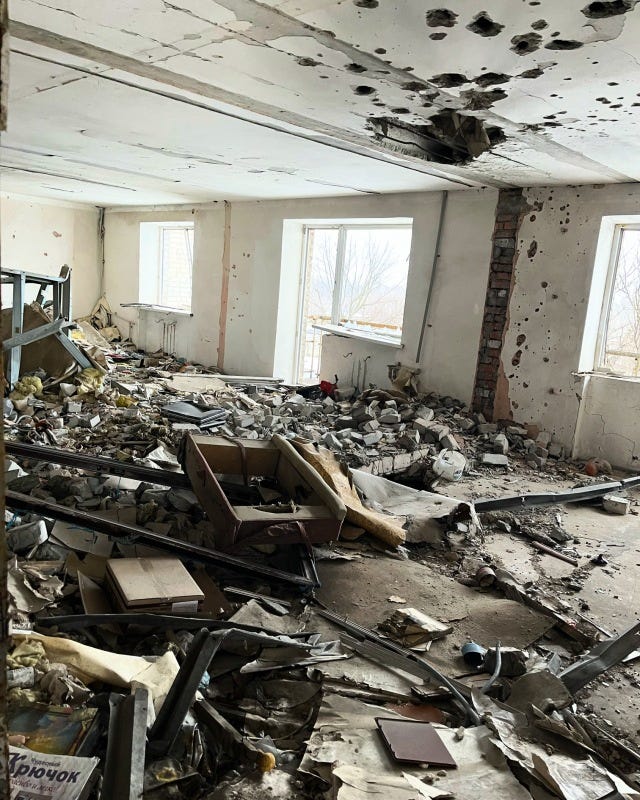
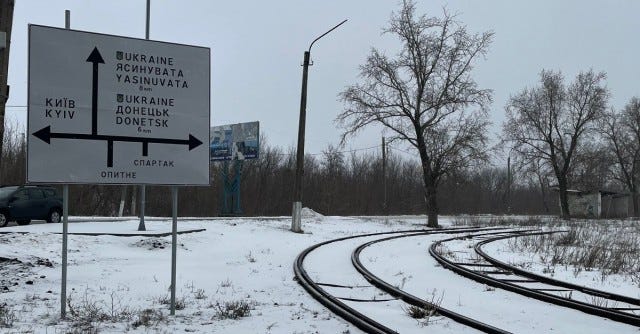
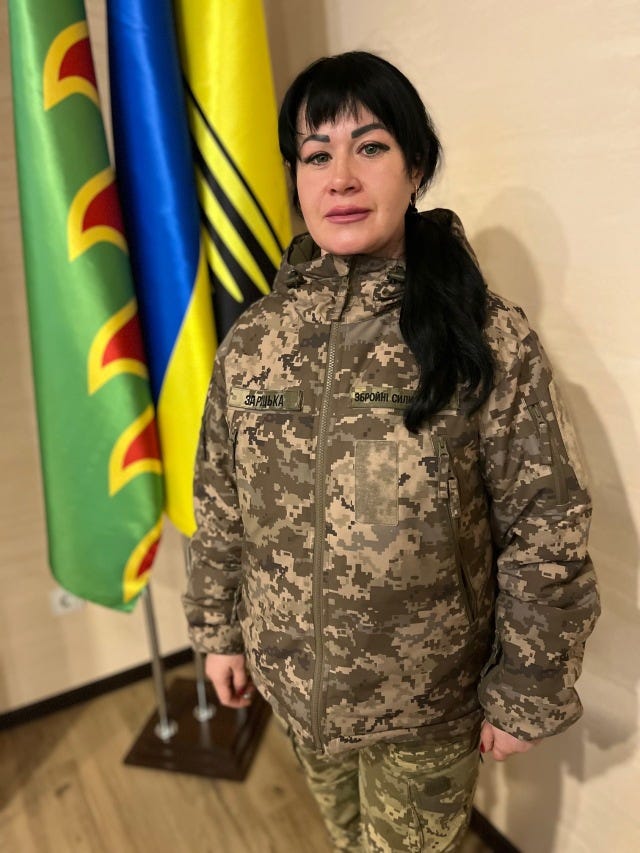

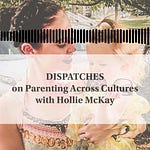
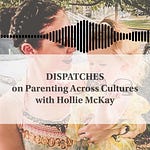
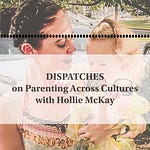
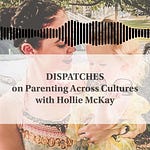

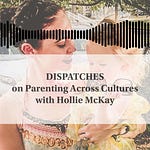

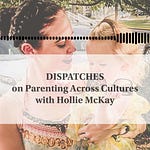
Share this post